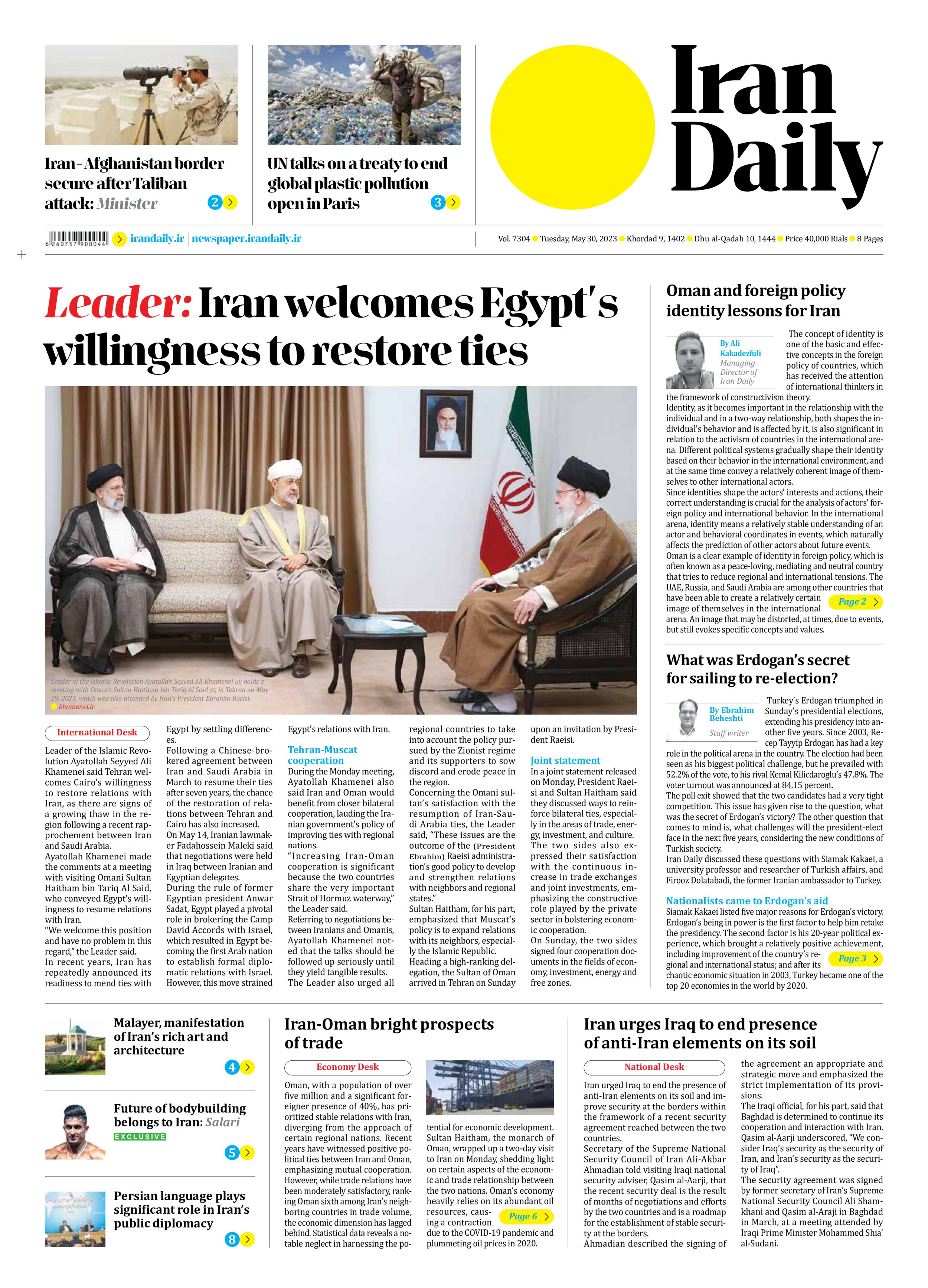
Oman and foreign policy identity lessons for Iran
By Ali Kakadezfuli
Managing Director of Iran Daily
The concept of identity is one of the basic and effective concepts in the foreign policy of countries, which has received the attention of international thinkers in the framework of constructivism theory.
Identity, as it becomes important in the relationship with the individual and in a two-way relationship, both shapes the individual’s behavior and is affected by it, is also significant in relation to the activism of countries in the international arena. Different political systems gradually shape their identity based on their behavior in the international environment, and at the same time convey a relatively coherent image of themselves to other international actors.
Since identities shape the actors’ interests and actions, their correct understanding is crucial for the analysis of actors’ foreign policy and international behavior. In the international arena, identity means a relatively stable understanding of an actor and behavioral coordinates in events, which naturally affects the prediction of other actors about future events.
Oman is a clear example of identity in foreign policy, which is often known as a peace-loving, mediating and neutral country that tries to reduce regional and international tensions. The UAE, Russia, and Saudi Arabia are among other countries that have been able to create a relatively certain image of themselves in the international arena. An image that may be distorted, at times, due to events, but still evokes specific concepts and values.
It is important to note that the image that countries create of themselves is not necessarily a positive image, albeit they all try to be so. Because basically, identity is not a one-sided issue. While actors can create their own identity, the representation of this identity by other actors must also be understood or approved. An example of this is the United States, which, despite trying to build a certain identity for itself, based on the values of liberal democracy, is often known in the international arena as a domineering and bellicose political system.
It seems necessary that the political system of the Islamic Republic of Iran would pay more attention to redefining its foreign policy identity. A system that has certain value foundations and promotes its activities in the international arena, based on a series of specific principles. Especially since the different governments that have come to power in Iran have acted based on different discourses and had different approaches to foreign policy issues.
Differences in approaches and discourses of governments have caused the methods of action to be different in each period of time, based on the social and political atmosphere in the country, in the general framework of preserving national interests. Although researchers have written many books and articles about Iran’s foreign policy and listed many features for it, it seems that theorizing about the identity of the foreign policy of the Islamic Republic of Iran is still an important and significant issue.
In this regard, it is important to pose some questions to Iran’s foreign policy officials and academic researchers.
First, what are the components of Iran’s foreign policy identity at the moment?
Second, what components of this identity have been consciously determined?
Third, what are the coordinates of the representation of Iran’s foreign policy identity in the international arena?
Fourth, to what extent does this representation correspond to reality?
Fifth, what perception does the representation of the foreign policy of the Islamic Republic of Iran create for the actors of the international arena?
And finally, which components can be extracted from the national, religious and social identity resources of the Iranian society for the foreign policy identity of Iran?
The answers to these questions can provide a more accurate understanding of the nature of the foreign policy of the Islamic Republic of Iran and the analysis of related issues.







